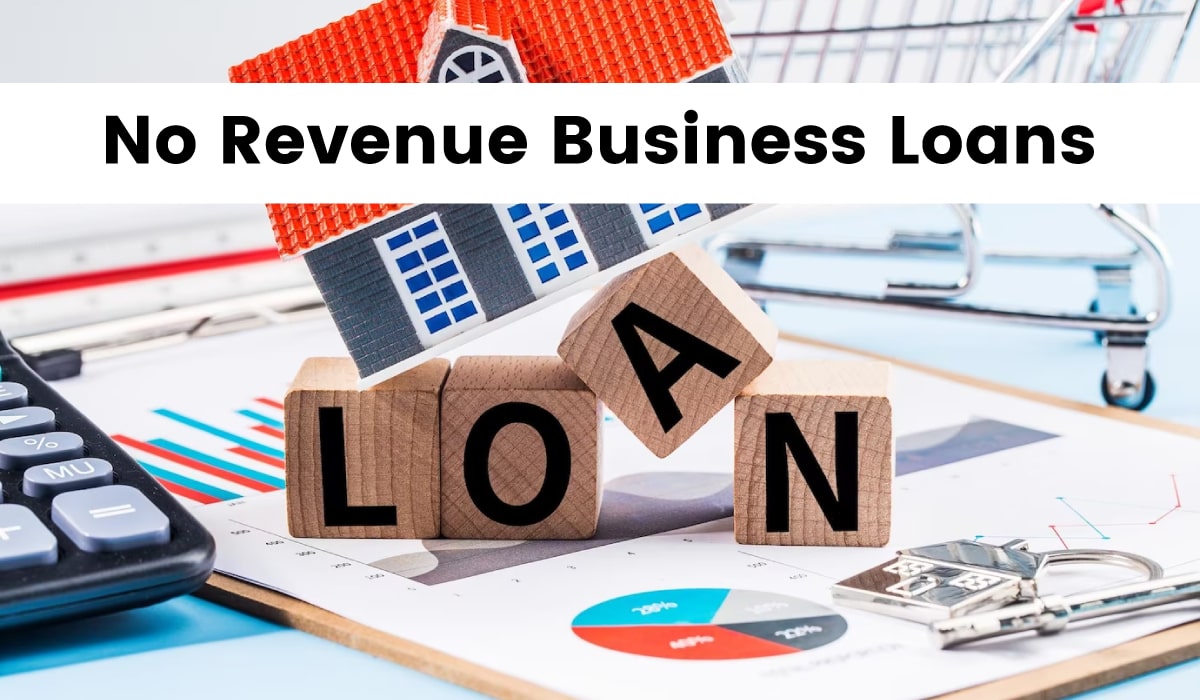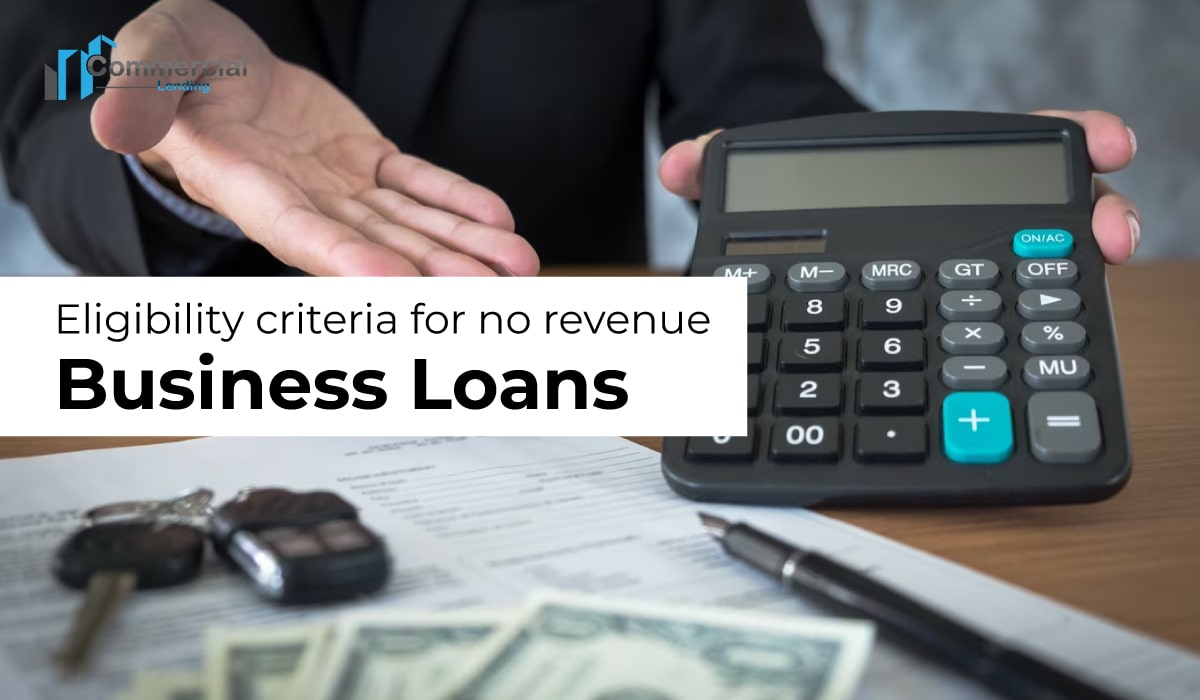
No Revenue Business Loans
"No Revenue Business Loans" are loans offered to businesses that have not yet generated revenue. These loans frequently require a co-signer with good credit or the owner of the business's assets as security.
Startup Business Loan

Starting a business can be expensive, and many entrepreneurs often rely on startup business loans to fund their ventures. These loans are designed for new businesses and provide the necessary working capital to cover initial expenses such as equipment, office space, and inventory. Lenders typically evaluate the borrower's credit worthiness and may require collateral or a personal guarantee to secure the loan. It is important for entrepreneurs to carefully consider their financial needs and repayment ability before taking out a startup business loan.
What are no revenue business loans?

No revenue business loans are specifically designed to help businesses that have not yet generated revenue. Alternative lenders working with startups and small businesses typically offer these loans. Lenders no longer rely solely on revenue history to make decisions. Other factors, such as the borrower's credit score, business plan, and growth potential, are considered.
Business loans with no revenue can be used for multiple reasons. Examples include buying inventory, hiring staff, and investing in marketing. They provide a way for companies to get the funding process they need to get off the ground and generate revenue.
Types of no revenue business loans

Several no revenue business loans may be available to startups and early-stage companies.
Here are a few examples:
- Small businesses can use microloans to get started. Most of the time, they cost between a few thousand dollars and $50,000. Nonprofit organizations and government agencies may provide loans. These loans may have lower interest rates and more flexible repayment terms than other types.
- Crowdfunding involves raising funds from many people, usually through an online lender. It is a good option for companies. They must have a unique story or product and be able to attract the attention of potential investors.
- You can borrow money to buy tools for your company through equipment financing. The equipment loan is collateral, making it easier to get approved. This type of business financing may be available even if your company hasn't yet generated revenue.
- Personal loans can be used for anything, including supporting companies.
- Having good credit and a well-thought-out plan for your company can help you get a personal loan. This loan can kick-start your company.
- Business credit cards can be very useful for companies. They provide easy access to funds, especially for those just starting. Many credit cards have rewards programs or other perks that benefit your company.
Understand lender requirements
Before applying for a no revenue business loans, it's important to understand the specific requirements of your lender. This can help you tailor your application and increase your chances of approval. Do some research on the lender's eligibility criteria, loan terms, and application process. Find out what documents and information they require from borrowers. Being well-informed can save you time and frustration in the long run. Remember, not all lenders are the same, so it's essential to choose one that aligns with your needs and goals as a business owner.
Invoice financing
A potential strategy for generating revenue while waiting for your business to generate revenue organically is through invoice financing. This involves selling your unpaid invoices to a lender, who then advances you the value of those invoices minus a fee. This can help improve cash flow and provide the necessary funds to cover expenses or invest in growth opportunities. However, it's important to carefully consider the terms and fees associated with invoice financing before moving forward. Make sure it aligns with your overall financial goals and won't negatively impact your business in the long-term.
Best invoice factoring
When it comes to choosing the best invoice factoring company for your business, there are several factors to consider. Look for a company that offers competitive rates and flexible terms. Additionally, consider their customer service and reputation in the industry. It's also important to choose a factoring company that specializes in your particular industry or type of business. This can ensure that they have the necessary expertise to effectively manage your accounts receivable and provide personalized support.
Crowdfunding
Another option for obtaining funding for your business is through crowdfunding. Crowdfunding platforms allow entrepreneurs to raise money from a large number of individuals who believe in their product or service. This can be a great way to generate revenue without taking on debt or giving up equity in your business. It's important to thoroughly research the different crowdfunding options and choose one that aligns with your business goals and values. Be sure to create a compelling pitch and offer unique rewards to incentivize backers to contribute to your campaign.
Microloans
If your business needs a smaller amount of funding, microloans may be a viable option. Microloans typically range from a few thousand to tens of thousands of dollars and can be used for a variety of purposes. These loans are usually provided by non-profit organizations or community development financial institutions (CDFIs) and often come with lower interest rates and more flexible repayment terms than traditional bank loans. To qualify for a microloan, you'll need to have a solid business plan and demonstrate your ability to repay the loan.
Business Loans with No Collateral
For businesses that don't have collateral or assets to put up for a loan, there are still options available. Some lenders offer unsecured business loans that don't require collateral, but may come with higher interest rates and stricter repayment terms. It's important to carefully consider the terms and fees associated with these types of loans before committing to one. Additionally, alternative lenders such as online lenders and peer-to-peer lending platforms may also offer business loans without requiring collateral. As with any loan, it's important to do your research, compare different lenders, and choose one that fits your business needs and goals.
Equipment & Machinery
If your business requires expensive equipment or machinery, there are specialized loans available to help you finance these purchases. Equipment financing loans allow you to borrow money specifically for the purpose of purchasing equipment and often come with lower interest rates than general business loans. These loans may also offer flexible repayment terms based on the lifespan of the equipment. Additionally, some lenders may offer refinancing options for equipment that you already own, allowing you to free up cash flow by spreading out payments over a longer period of time.
Lending advisors that are experts in getting you funded
If you're looking for guidance and expertise in securing a business loan, consider working with a lending advisor. These professionals specialize in helping businesses find the right loan options and navigate the application process. They can help you assess your financial needs, identify potential lenders, and negotiate loan terms on your behalf. Working with a lending advisor can save you time and stress, while increasing your chances of getting approved for the loan you need to grow your business. As always, it's important to do your research and choose an advisor with experience and a solid track record of success.
Eligibility criteria for no revenue business loans

The eligibility criteria for no revenue business loans can vary depending on the lender and the type of loan. However, there are a few factors that most lenders will consider when evaluating your application:
- Personal credit score: Many lenders will look at your credit score to assess your creditworthiness. A good credit score can give you an advantage when applying for a loan. It can improve your acceptance chances and lead to more advantageous terms.
- Business plan: Lenders want a detailed plan outlining their company's goals, market opportunities, and financial projections. Your plan should show that you understand your industry well. Additionally, it should outline a strategy for generating revenue.
- Collateral: Some lenders may ask you to put up something as collateral to get the loan. It could be in the form of assets like real estate or equipment financing.
- Lenders may ask you to provide a personal promise. It means you are personally responsible for repaying the loan if your company cannot.
- Industry experience: Lenders may prefer to work with borrowers who have experience in the industry they are entering. Experience running a similar company or working in the industry can improve your loan approval odds. Prior knowledge can be beneficial.
- Lenders may consider other factors when evaluating a loan application. These include the size of your company, revenue projections, and overall financial health.
Pros and Cons of No Revenue Business Loans
Pros:
- No revenue business loans offer an alternative for startups and early-stage companies to access working capital. Traditional business lenders may be reluctant to invest in unproven companies, but this provides a viable and great option.
- No revenue business loans often have more flexible repayment terms than traditional loans. It can benefit companies that are just getting started and do not have a steady revenue stream.
- No revenue business loans provide funding to help companies get started. It can help build a strong foundation for future growth and success. These loans offer an opportunity for companies to grow.
Cons:
- No revenue business loans typically have higher interest rates and fees than traditional loans. It can make it much more expensive to borrow money.
- Limited loan amounts: Depending on the lender and the type of loan, the amount you can borrow may be limited. It can make accessing the funding you need to grow your business difficult.
- Some no revenue business loans may require collateral or a personal guarantee. This can put your assets at risk if you cannot repay the loan.
- Any company can face risks when it takes on debt. It is important to consider whether you can repay the loan before accepting it. The potential for debt should be considered.
How to Get a No Revenue Business Loans

Getting a business loan with no revenue can be difficult. There are, however, measures you can take to increase your chances of approval.
- Research lenders: Start by researching lenders that offer no revenue business loans. Look for lenders that specialize in working with startups and early-stage businesses.
- Prepare a detailed business strategy: It can help you demonstrate to lenders that you understand your industry and have a plan to generate revenue. A strong company's strategy is key. Include financial projections showing how you plan to use the loan to grow your company.
- To improve your credit score: This is especially important before applying for a loan. Your credit score can go up if you pay down your debt. Dispute any errors on your credit report to improve your credit score further. Additionally, make sure all of your bills are paid on time.
- Think about collateral: You may be able to use assets such as real estate or equipment to secure a loan. These items can act as collateral to guarantee repayment. Remember that the lender may seize your collateral if you cannot repay the loan.
- Search for other ways to fund your business: If you can't get a loan, look into crowdfunding, grants, and small business credit cards. These are great alternatives to traditional loans.
- Consider working with a financial advisor if you need help with the application process. They can guide you and help you find the right funding solution for your company.
Alternatives to No Revenue Business Loans

If you're unable to qualify for a no revenue business loans, there are several alternative funding options that you can consider. Here are some more things to think about:
- Crowdfunding: Crowdfunding is a way for startups and small businesses to get money that is becoming increasingly popular. Platforms such as Kickstarter and Indiegogo offer a great opportunity for people to promote their products and ideas. They also enable people to raise funds from a large audience.
- Grants: Many grants are available for small companies and startups, particularly those focused on social impact or innovation. Research grants in your industry or region to see if you qualify.
- Small business credit cards can be a good way to get money, especially if you only need a small amount. Just be sure to pay off the balance each month to avoid accruing interest.
- Angel investors: In exchange for an ownership stake, angel investors invest in early-stage companies. Look for angel investor networks in your area, and be prepared to pitch your idea to potential investors.
- Friends and family: Borrowing money from friends and family can be risky, but it can also be a good way to get started if you only need a small amount. Be sure to put your agreement in writing and treat it as a professional transaction.
- Bootstrapping: Finally, bootstrapping is one of the most popular ways to fund new companies. It means using your savings or working another job to keep your company going until it starts making money.
Conclusion
No revenue business loans can be a valuable resource for startups and early-stage companies struggling to generate revenue. Although it may be difficult to qualify for these loans, they may carry higher interest rates. They can provide the working capital to launch companies and generate revenue. In addition to no revenue loans, other options are available for entrepreneurs looking to fund their company's ventures. Numerous avenues are worth exploring, from grants and small companies' credit cards to angel investors and friends/family.
FAQ
What is a no revenue business loans?
A no revenue business loans is a loan that is given to a company that has not yet generated any revenue. These loans are typically provided to startups and early-stage companies still building their businesses.
How can I qualify for a no revenue business loans?
Qualifying for a no revenue business loans can be challenging. Lenders typically require a strong company strategy, a high personal credit score, collateral, and other factors. However, working with a financial advisor and researching lenders that specialize in working with startups can improve your chances of getting approved. If you're an entrepreneur looking to start a company but haven't generated any revenue, getting a no revenue business loans could be a great option. While it may be challenging to qualify for one, there are several ways to increase your chances of approval.
How much funding can I expect to receive from a no revenue business loans?
The amount of funding you can receive from a no revenue business loans can vary widely depending on the lender and the type of loan. Some lenders may offer a few thousand dollars, while others may offer several hundred thousand dollars or more. It's important to remember that lenders will typically consider factors such as your credit score, plan, and collateral when determining the amount of funding they're willing to provide. It's also important to carefully review and understand the terms and repayment requirements before accepting any loan offer.
Can I get a business loan with no revenue?
It can be difficult to secure a business loan without any revenue, as lenders typically use revenue as a measure of the borrower's ability to repay the loan. However, some options are available for entrepreneurs who are just starting out or have not yet generated significant revenue. One option is to seek out alternative lending sources, such as peer-to-peer lending or crowdfunding platforms, which may be more willing to lend to companies with little or no revenue. Another great option is to consider a personal loan or line of credit, which can be used to fund expenses.
Can you get a SBA loan with no money?
It is possible to get an SBA (Small Business Administration) loan without putting any money down. Still, it will depend on various factors, such as your credit score, your business plan, and the lender's requirements.
Can I get a business loan with EIN number?
Yes, it is possible to get a business loan using your EIN (Employer Identification Number) instead of your personal social security number. In fact, many lenders prefer to work with companies with an EIN as it helps establish the company's legal identity and separates it from the owner's personal finances. When applying for a loan with your EIN, you must typically provide information about your financial history and creditworthiness, such as revenue and profitability data, bank account statements, and credit scores.
For general inquiries:
* Email: [email protected]
* Phone: +1 (571) 544-6600
Sam Haq, CEO
Commercial Lending USA
www.commerciallendingusa.com
0 Comments
Leave A Comment